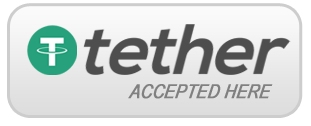FREELANCE

Working in Crisis: 19 Thoughts for Freelancers
January 25, 2022
BACK TO BLOG
For a year and a half, we lived on autopilot. Plus the growth of the market. It's time to turn off the autopilot and switch to manual control. Time to optimize.
I threw 19 thoughts - tips that are suitable for both beginners and experienced freelancers.
1. Focus on one target audience and work only with it. So you will have less defocus in the search.
2. Eliminate projects from your audience that are less likely to be your clients. So you won't waste precious time on low-conversion communications.
3. Choose 1-3 products to sell. You can't sell everything at once to new customers. Focus on the essentials.
4. Try to form a set of products with a high check. So each sale will be felt financially, and marketing costs will be less.
5. Work out the acquaintances first. Write a relevant message. Act openly, but not arrogantly. It's okay to be direct if you're having a business conversation.
6. Remember and record the actions that generated orders for you in the past. Select the necessary and resuscitate procedures.
7. Now or after the first order, hire people for 1/4-1/2 rate for simple regulated work. This will free up half your day.
8. Prepare the maximum amount of text describing what you are doing, but on the go, and not before the sale. No need to prepare a week for the first call. So you can sell tomorrow.
9. Look for partners for the production of services. This way you can focus on sales. That is what you are working for. You can't stop selling, but keeping commitments takes time and doing a good job.
10. Make as many calls as possible. Try to close each lead by talking with your voice. The conversion to payment in b2b with a call is higher than without.
11. Use short funnels in your work. The shorter the funnel, the faster it passes. No need to plan for a long warm-up. If you're blogging, you'll be fine on your own.
12. Do not be afraid to advise on a call and understand the problem right away. The phrase “we will deal with your problem and solve it after signing the contract” is more repulsive than “show me where the problem is”.
13. Always tell it like it is. Do not lie. If you understand that you do not have enough competencies in some part of the issue, then say directly “I have little experience here, but I can strengthen my proposal with this, and if necessary, find a solution at the expense of third-party consultants.”
14. If you already have employees, do not allow idle work. First check if they have tasks, then move on to your own.
15. Don't copy or compare yourself to your competitors. No need to create a copy of the product or copy the approach. Develop yours as you go. Be aware of what others have, but sell yourself as you are.
16. Constantly think about traffic management. You must be a traffic maniac. If you have the right product and you explain it, then orders cannot fail to come to you if there is traffic.
17. Don't give discounts on services. You can't cheapen your hours of work. Discounts can be given for an information product or service.
18. Think about how you can be useful to existing customers. Don't be afraid to share contacts, invite other people to projects and build business connections.
19. Consider participating in closed affiliate programs, when you, on an exclusive basis, natively sell products with a high check of non-competitive players on an individual basis.
RELEVANT POSTS






